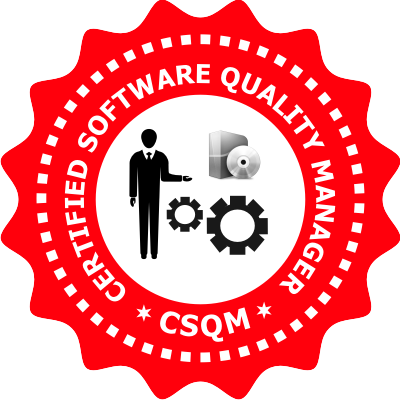Developers, Testers, System Analyst, Quality Assurors, EPG Members.
- Certifications
-
- Project Management Certifications
- Lean and Six Sigma Certifications
- Software Testing Certifications
- Mobile Testing Certifications
- Software Automation Testing Certifications
- Software Security Testing Certifications
- Cloud Testing Certifications
- Agile Testing Certifications
- Software Quality Assurance Certifications
- Scrum / Agile Certifications
- Change Management Certifications
- Business Analyst Certifications
- Business Process and Management Certifications
- DevOps and Big Data Certifications
- Call Centre Certifications
- Cloud Computing Certifications
- Data Centre Certifications
- Information Systems Security Certifications
- Supply Chain, Procurement and Retail Certifications
- Management Certifications
- Finance and Accounting Certifications
- Sales and Marketing Certifications
- Information Technology Certifications
- ISO and IEC Certifications
- Artificial Intelligence Certifications
- Health Care and Nursing Assistant Certifications
- Web Designing and Developer Certifications
- Python Certifications
- Construction and Real Estate Certifications
- Sports Management Certifications
- Library Management Certifications
- Human Resource Certifications
-
- Advanced Diploma in Human Resource Management (ADHRM)
- Diploma in Business Process and Management (DBPM)
- Diploma in Business Research and Analysis (DBRA)
- Diploma in Hardware and Networking (DHN)
- Postgraduate Diploma in Web Designing and Development (PGDWDD)
- Post Graduate Diploma in Software and Mobile Testing (PGDSMT)
-
- About Us
- Globally Certified Professionals




